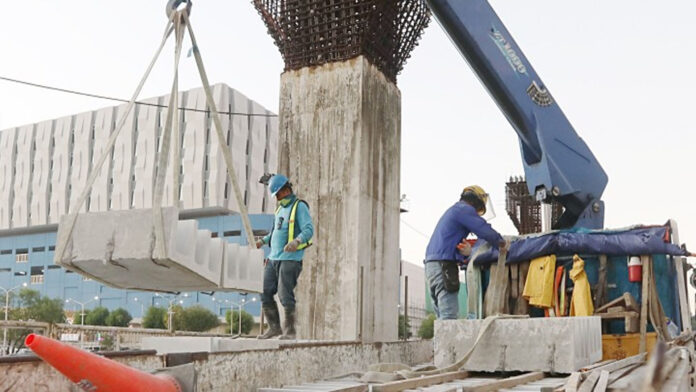A lawmaker on Thursday welcomed President Ferdinand R. Marcos Jr.’s move to certify as urgent the proposed Public-Private Partnership (PPP) Act, saying it is crucial in unlocking “trillions of private sector resources” and direct them toward key infrastructure projects.
In a statement, Ways and Means Committee chair Joey Salceda said with the certification of urgency, he expects the Senate to pass the measure a few days after the President’s second State of the Nation Address.
“The banking sector has PHP23.4 trillion in financial resources to lend, and some PHP1.4 trillion in capital expenditures earmarked for this year among the largest companies in the Philippines. So, we have plenty of resources in the private sector. We could use them, now,” Salceda said.
“So, the certification of urgency is really crucial. And, as we’re studying the emerging version from the Senate, we think this will be a quick bicameral conference committee, if that’s even needed,” he added.
Salceda said the proposed measure “will modernize the PPP framework of the country”, explaining that the current PPPs primarily operate under the 33-year-old Build-Operate-Transfer Law that no longer responds to the complexities of the PPP landscape.
“A lot of the more successful PPPs – including those in Clark and BGC – come from the more flexible provisions and framework under other laws, such as the BCDA Law. LGUs are also undertaking some experimentation, in the absence of a clear law allowing or preventing them from certain modes of PPP. We’re learning from these. But without a more comprehensive framework, it’s also Wild West out there, and that risks the fiscal health of local and national governments,” he said.
He said issues on payment and determining the liabilities of public and private parties should be addressed, as well as other controversial questions of PPP policy, such as materially adverse government action, approval thresholds and local PPPs.
“So, this law will lift investor uncertainties over these key issues. And it will help us manage contingent liabilities as well as delays in project implementation. Let’s settle the law, and it will hit the ground running,” he said.
HB 6527, or the Public-Private Partnership (PPP) Act has already hurdled final reading at the House of Representatives.
Finance Secretary Benjamin Diokno earlier said the passage of the proposed PPP Act, along with the proposed Maharlika Investment Fund (MIF) Act, could help accelerate infrastructure spending to 10 to 12 percent of gross domestic product (GDP) as early as next year.
The proposed PPP Act provides a unified legal framework for all PPPs at the national and local levels, covering all types of PPP arrangements, including joint ventures and toll operations agreements, to create a stable and predictable environment for collaboration between the public and private sectors in infrastructure development, thereby reducing transaction costs and improving the ease of doing business.
Under the Development Budget Coordination Committee’s (DBCC) medium-term fiscal program, the government intends to ramp up infrastructure spending to 5 to 6 percent of GDP.
For this year, the 5.3 percent of GDP target translates to about PHP1.2 trillion.
Infrastructure spending target for 2024 is PHP1.36 trillion, PHP1.45 trillion in 2025, PHP1.59 trillion in 2026, PHP1.88 trillion in 2027, and PHP2.28 trillion in 2028. (PNA)


